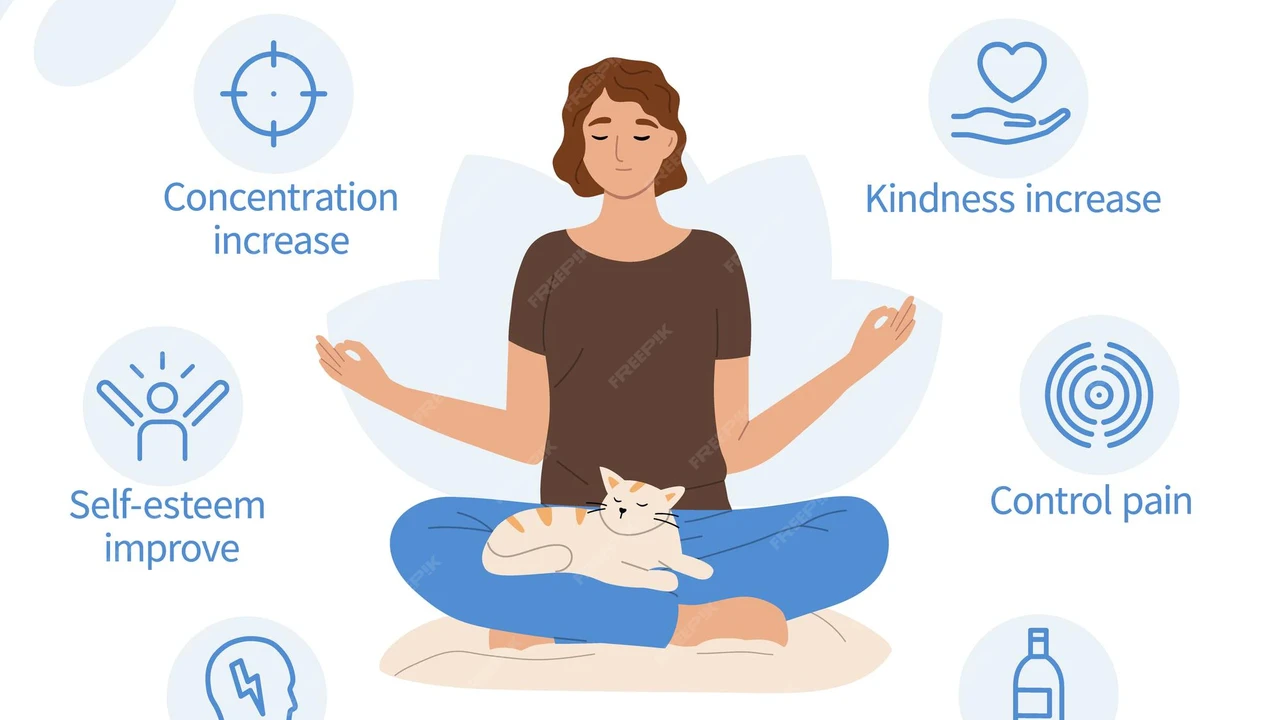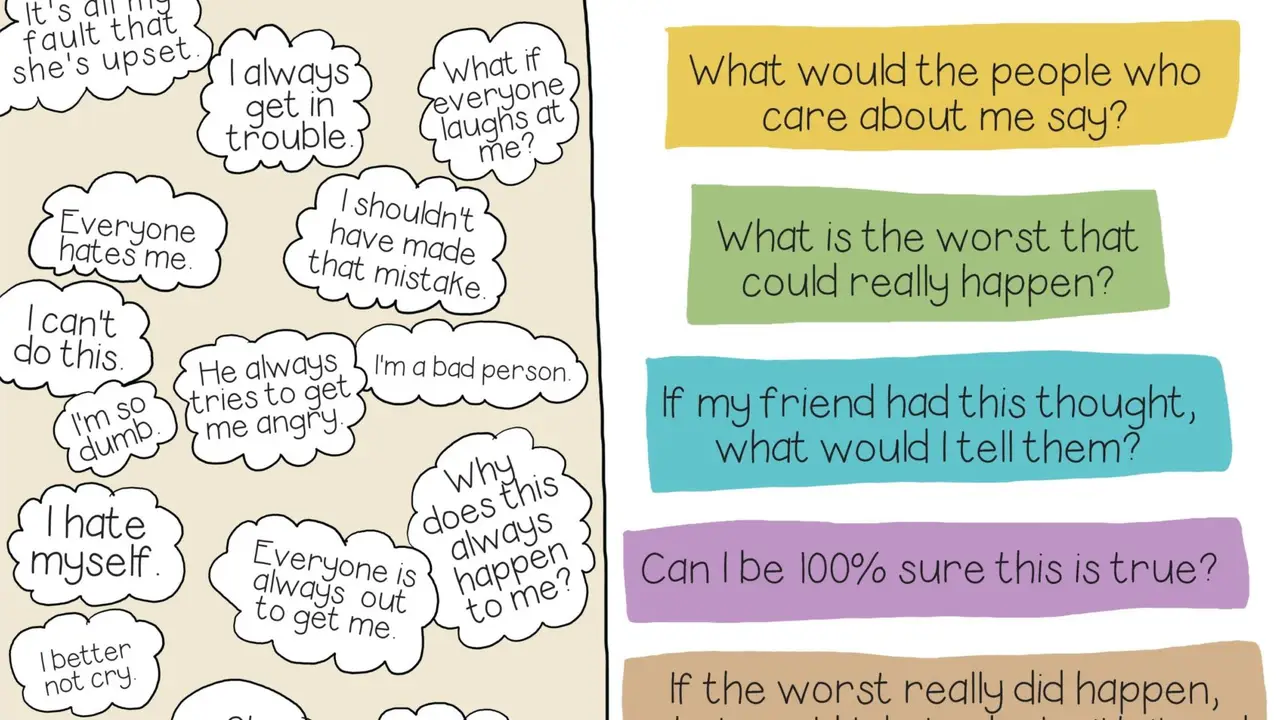How to Set Healthy Boundaries: Protect Your Time and Energy
Sample meta description.

Understanding Healthy Boundaries The Foundation of Mental Wellness
Okay, let's talk boundaries. Not the kind that involve fences or property lines, but the invisible lines we draw around ourselves to protect our time, energy, and emotional well-being. Think of them as your personal force field, deflecting negativity and safeguarding your mental space. Why are these boundaries so crucial for mental wellness? Because without them, you're basically saying "Yes!" to everything and everyone, leaving you drained, resentful, and feeling like you're constantly being taken advantage of. Setting healthy boundaries isn't selfish; it's self-preservation. It's about recognizing your own worth and prioritizing your needs.
Imagine this: you’re constantly saying yes to extra work projects, even though you’re already swamped. You’re always the one bailing out friends in need, even when you’re exhausted. You’re letting family members walk all over you with their demands. Sound familiar? That's a classic example of boundaryless living. And trust me, it's a fast track to burnout.
Recognizing Your Needs Identifying Your Boundary Breakers
So, how do you know if your boundaries are weak or nonexistent? Start by paying attention to your feelings. Do you often feel resentful, overwhelmed, or taken for granted? Do you find yourself saying "yes" when you really want to say "no"? Do you avoid conflict at all costs, even when you're being treated unfairly? These are all red flags that your boundaries need some serious attention.
Think about the people in your life and the situations that consistently leave you feeling drained. Who are the energy vampires? What are the recurring patterns of behavior that trigger your resentment? Identifying these "boundary breakers" is the first step towards reclaiming your power. Maybe it's a coworker who constantly asks you to cover their shifts. Maybe it's a friend who always needs to vent but never listens to your problems. Maybe it's a family member who constantly criticizes your choices. Once you've identified these individuals and situations, you can start to develop strategies for setting clearer boundaries.
Setting Clear Boundaries Communication Strategies for Mental Health
Okay, now for the tricky part: actually setting the boundaries. This requires clear communication, assertiveness, and a willingness to say "no" – even when it's uncomfortable. The key is to be direct, respectful, and firm. Avoid being apologetic or wishy-washy. State your needs clearly and explain your reasoning without getting defensive.
For example, instead of saying "Ugh, I guess I can help you with that project, even though I'm already really busy," try saying "I appreciate you thinking of me, but I'm currently at capacity and unable to take on any new projects." Or, instead of saying "I don't really want to go to that party, but I guess I should," try saying "Thank you for the invitation, but I won't be able to make it. I need to prioritize some downtime for myself."
Remember, you're not responsible for other people's reactions to your boundaries. They might be disappointed, angry, or even try to guilt-trip you. But that's their problem, not yours. Stand your ground and don't let them manipulate you into crossing your own boundaries.
Maintaining Your Boundaries Consistency and Self-Care for Lasting Change
Setting boundaries is one thing, but maintaining them is a whole other ballgame. It requires consistency, self-awareness, and a commitment to prioritizing your own needs. Be prepared for people to test your boundaries, especially in the beginning. They're used to you saying "yes," so they might push back when you start saying "no." Don't give in! Reinforce your boundaries consistently and they'll eventually get the message.
Self-care is also essential for maintaining healthy boundaries. When you're feeling stressed, depleted, or overwhelmed, it's much harder to stick to your boundaries. Make sure you're taking care of your physical, emotional, and mental needs. This might involve getting enough sleep, eating healthy foods, exercising regularly, spending time in nature, practicing mindfulness, or engaging in activities that you enjoy.
Specific Product Recommendations for Boundary Reinforcement and Stress Management
Beyond just setting verbal boundaries, sometimes tangible tools can help reinforce those boundaries and manage the stress that comes with enforcing them. Here are a few product recommendations, considering various scenarios:
Noise-Canceling Headphones The Quiet Revolution for Focus and Calm
Product: Bose Noise Cancelling Headphones 700, Sony WH-1000XM5
Use Case: Imagine you're working from home and your family is being loud. Or you're on a crowded train and need to focus on work or simply de-stress. Noise-canceling headphones create a bubble of silence, allowing you to concentrate and protect your mental space from external distractions. They're perfect for setting a boundary around your workspace and signaling to others that you need uninterrupted time.
Comparison: The Bose 700 are known for their excellent noise cancellation and sleek design, while the Sony WH-1000XM5 offer slightly better sound quality and battery life. Both are premium options, but the Sony might be preferred by audiophiles. Cheaper alternatives like Anker Soundcore Life Q30 offer good noise cancellation at a more affordable price point.
Price: Bose 700 (~$379), Sony WH-1000XM5 (~$399), Anker Soundcore Life Q30 (~$79)
Smart Home Devices Time Management and Automation Tools
Product: Amazon Echo (with routines), Google Home (with routines)
Use Case: Smart home devices can automate tasks and free up your time, reducing the mental load and allowing you to focus on what truly matters. For example, you can set up routines to automatically turn off lights at a certain time, play relaxing music before bed, or remind you to take breaks throughout the day. This helps you create a structured environment that supports your boundaries and promotes well-being.
Comparison: Both Amazon Echo and Google Home offer similar functionalities, but the choice often comes down to personal preference and the ecosystem you're already invested in. Amazon Echo is generally considered better for shopping and smart home control, while Google Home excels at answering questions and providing information.
Price: Amazon Echo Dot (~$49), Google Nest Mini (~$49)
Weighted Blankets The Comforting Hug for Stress Relief
Product: Gravity Blanket, YnM Weighted Blanket
Use Case: Weighted blankets provide deep pressure stimulation, which can help reduce anxiety and promote relaxation. They're perfect for winding down after a long day, creating a sense of security and comfort, and signaling to your body that it's time to rest. This can be especially helpful for those who struggle with overthinking or have difficulty setting boundaries around their sleep time.
Comparison: The Gravity Blanket is a premium option known for its high-quality materials and even weight distribution. The YnM Weighted Blanket is a more affordable alternative that still provides excellent comfort and stress relief. Consider the weight of the blanket based on your body weight – typically 10% of your weight is recommended.
Price: Gravity Blanket (~$279), YnM Weighted Blanket (~$79)
Time Management Apps Digital Boundaries for a More Productive You
Product: Forest, Freedom, RescueTime
Use Case: These apps help you manage your time and attention by blocking distracting websites and apps. Forest encourages you to stay focused by planting a virtual tree that grows while you're working, but dies if you leave the app. Freedom blocks distracting websites and apps across all your devices. RescueTime tracks how you spend your time on your computer and provides insights into your productivity habits.
Comparison: Forest is a fun and engaging way to stay focused, while Freedom offers more comprehensive blocking capabilities. RescueTime is ideal for tracking your time and identifying areas where you can improve your productivity.
Price: Forest ($1.99), Freedom (Subscription-based), RescueTime (Subscription-based)
Essential Oil Diffuser Aromatherapy for Calm and Focus
Product: Vitruvi Stone Diffuser, InnoGear Essential Oil Diffuser
Use Case: Aromatherapy can be a powerful tool for managing stress and promoting relaxation. Diffusing essential oils like lavender, chamomile, or bergamot can create a calming atmosphere and help you set a boundary around your personal space. This can be especially helpful when you need to focus on work or simply unwind after a stressful day.
Comparison: The Vitruvi Stone Diffuser is a stylish and aesthetically pleasing option, while the InnoGear Essential Oil Diffuser is a more affordable and functional choice. Consider the size of the room and the desired run time when choosing a diffuser.
Price: Vitruvi Stone Diffuser (~$119), InnoGear Essential Oil Diffuser (~$20)
Saying No Gracefully The Art of Assertive Communication
Learning to say "no" is a crucial skill for setting healthy boundaries. But saying "no" doesn't have to be a negative or confrontational experience. You can say "no" gracefully and assertively, without feeling guilty or apologetic. The key is to be clear, direct, and respectful. Acknowledge the request, state your refusal, and offer an alternative if possible.
For example, instead of saying "No, I can't help you with that, I'm too busy," try saying "I appreciate you asking, but I'm currently at capacity and unable to take on any new commitments. However, I might be able to help you next week. Would that work for you?" Or, instead of saying "No, I don't want to go to that party," try saying "Thank you for the invitation, but I won't be able to make it. I'm prioritizing some downtime for myself this weekend."
Remember, you have the right to say "no" without explanation. You don't owe anyone an explanation for your choices. If you're not comfortable explaining why you're saying "no," simply say "Thank you for understanding."
Re-evaluating and Adjusting Your Boundaries The Dynamic Nature of Mental Wellness
Boundaries aren't set in stone. They're dynamic and should be re-evaluated and adjusted as your needs and circumstances change. What works for you today might not work for you tomorrow. Pay attention to your feelings and be willing to adjust your boundaries as needed. If you're constantly feeling drained, resentful, or overwhelmed, it's a sign that your boundaries need some tweaking.
Don't be afraid to experiment with different boundaries and see what works best for you. It's a process of trial and error. The most important thing is to prioritize your own well-being and create a life that feels fulfilling and sustainable.
:max_bytes(150000):strip_icc()/277019-baked-pork-chops-with-cream-of-mushroom-soup-DDMFS-beauty-4x3-BG-7505-5762b731cf30447d9cbbbbbf387beafa.jpg)






